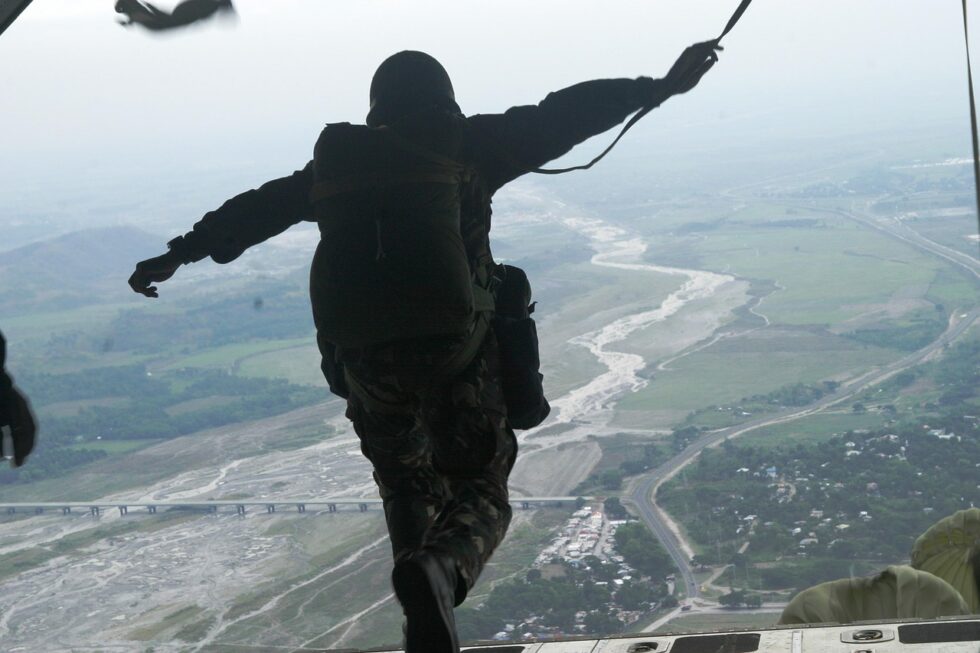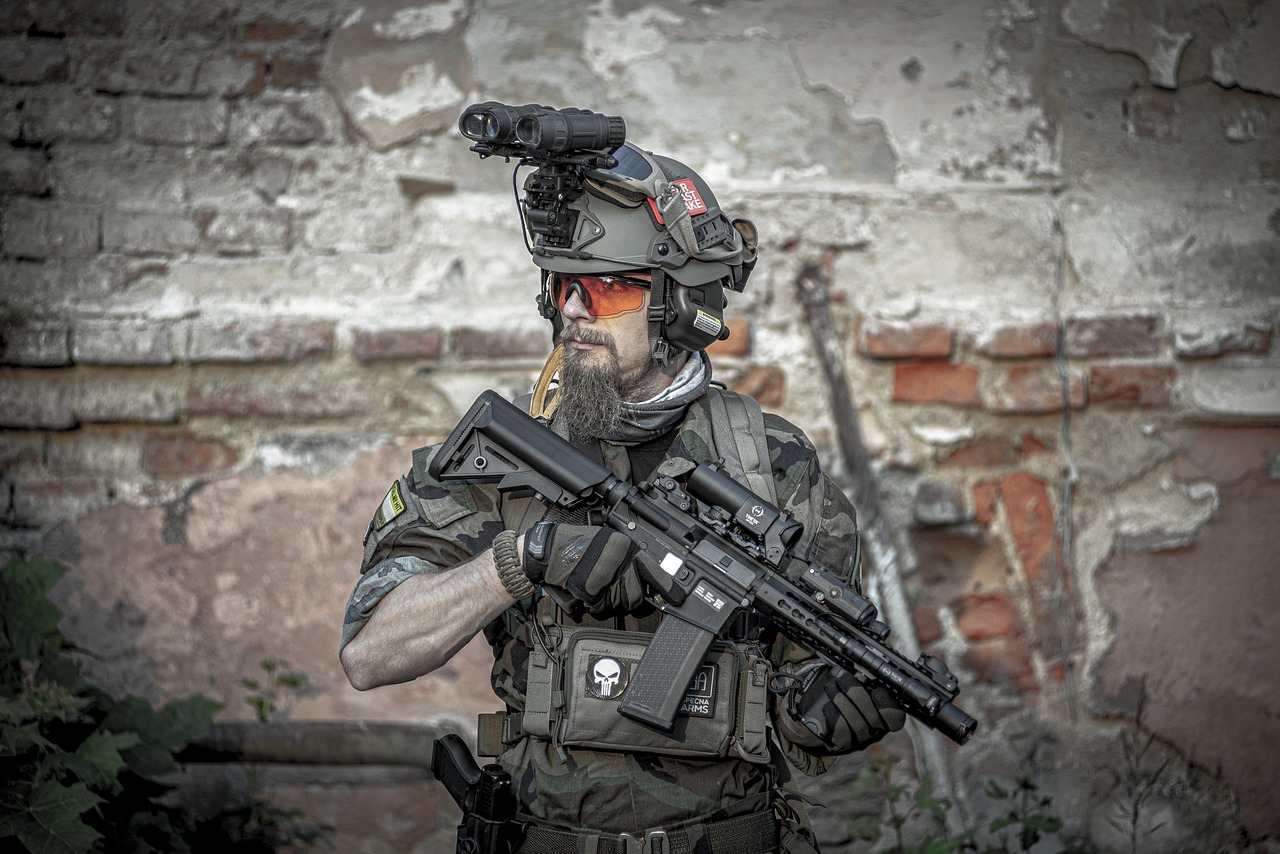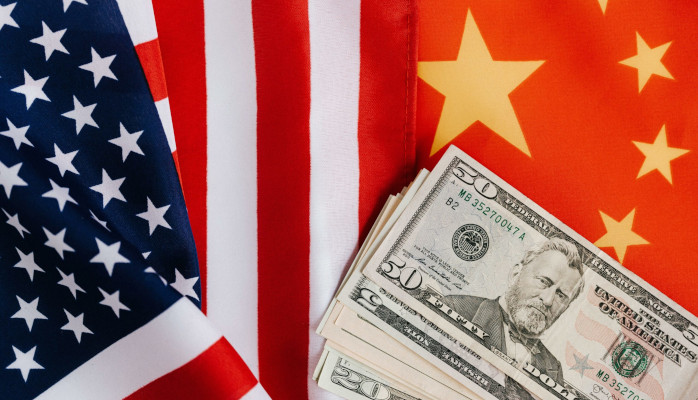
China’s failures to reform the army may lie deep in the ancient military mindset that doesn’t fit modern requirements.
Can the People’s Liberation Army (PLA) fight? And in case, how would they fight? They had the human waves in Korea, and they advised the Vietnamese on guerrilla warfare, but how would they perform in a modern war? Reportedly[i] , General He Weidong, the second-ranked vice-chairman of the Central Military Commission, denounced “fake combat capabilities” in the military, which experts say is likely related to weapons procurement – the focus of present corruption investigations.
However, foreign experts like Kenneth Allen believe the personnel is the actual weak link of the PLA. His key findings are the following:
- “The PLA has continued to make major adjustments to its enlisted force since 1999. These include creating a 30-year enlisted force, recruiting college students and graduates as two-year conscripts, shifting from a one-cycle to a two-cycle per year conscription system in 2021, and directly recruiting personnel with special technical skills as NCOs.
- The turnover of conscripts each year affects the annual training cycle, such that units are missing a significant number of personnel for months at a time.
- The officer corps has also changed considerably by abolishing the National Defense Student program that began in 1999, reducing the number of officer academic institutions from 63 to 34 in 2017, and directly recruiting college graduates as officers.
- When addressing personnel issues, one must examine each service, force, and branch, which are not equal in terms of conscript and NCO percentages as well as in the turnover of officers each year.
- Males cannot get married until they are 25, and females until they are 23, so the conscript force consists almost entirely of unmarried personnel.”
- Given problems identified in each of these programs, the PLA will most likely continue to make more major changes over the next decade. [ii]
These are current issues, however they may have complicated and deep cultural roots.
As Moss Roberts pointed out, Analects 2.3 argues against administrative law. Legge translated zheng 政 (make it right with a cudgel) as law. Confucius sees Zheng, along with punishment, as external coercion, arguing instead for de-virtuous leaders who, as role models, keep conscience/sense of shame chi 恥 (something like having an ear to the heart) alive in the people — a more dependable basis of social order. Mozi disagrees and says external leverage on behavior is essential, and therefore, internal factors like virtue and conscience are unlikely to suffice. Mencius’ theory of xing 性 (the personal character, what is engendered from the heart) as inherently good tries to recover the internal factors forcefully. Then, Xunzi admits the existence of xing but argues that it is evil, which brings us back to the need for external force pushing people to comply.
“The phrase from 12.5, “All men are brothers,” makes the same point. In 2.3, we find an important correlation between li and de. “Lead the people with law/governmental administration and keep order with punishments, then they will act so as to evade punishment, losing their sense of shame. Lead them with virtue (de德) and keep order with Ritual then the people will retain their sense of shame and observe discipline as well.”[iii]
Rituals like brotherhood have a hierarchy. Not everybody is equal, although classes are not clearly fixed. But there are junzi君子, lords who give orders, and xiao ren小人, little people. Ren仁 “benevolence,” respect among equals holds the ranks.
“Mozi replaced ren with jianai 兼愛(comprehensive love), which redefined filial service: one should serve the parents of others so that others will serve yours.”[iv]. That is, jian ai (jian= two hands holding tight a grain stalk, and ai sentiments between a claw and a cudgel, indicate feelings strongly controlled and held together) has no hierarchy. There are no differences in how people are treated. People have to become a unified body that listens to their masters, conform above (shang tong尚同), and do not conspire below (xia dang下黨).
This gradual social transformation was the premise of how Levy saw the army as a perfect projection of society as a whole[v].
Albert Gavalny has a critical account of this situation. There is a precise economic dimension to war. Conflict is not profitable; it’s wasteful, and it puts its survival at stake
“Squandering and losses arising from any military outlay are the equivalent of ten annual harvests. Faced with the prospect of similar expenditure, few states are in a position to put together and participate in a military coalition.” (Zhanguo ce 12:672).[vi] Plus, incorporating new land and people within the existing state was not a carefree exercise.
Greek armies moved differently. They pillaged the land, divided the spoils among the victors, and imposed a ‘command’ empire on the “victi” who paid taxes, tributes to Rome but famously kept their laws and religions.
In ancient China, we are in totally different circumstances, as war is deemed dangerous, expensive, and rewarding less than it can potentially beget. It is waged as a matter of survival of one’s political domain, but not for the economic returns moving Greek-Roman armies.
The generals, the strategists become very important.
“What matter now are abilities shown in accurate evaluation of the situation and circumstances of combat, correctly fathoming the state of enemy forces, hatching plans, devising intelligent strategies adapted to the conditions of the adversary, and so on…
The soldier, an anonymous member of a mass army, must submit to the commander’s edicts, making sure that his body scrupulously performs the automatic movements that are required of him. What is demanded of him is not so much bravery as docility. This new conception of war generates mechanical, passive subservience as the ineluctable condition, not only for victory but even for being in a position to enter into contest for it. The prime objective of the art of warfare is that of extracting from every soldier obedient, docile, and useful submission thanks to the sustained, constant, analytical, and thoroughgoing application of a tenacious disciplinary technique that is aimed at wholly neutralizing any resistance that these individuals might originally have harbored. Strictly speaking, the meaning of war no longer pertains to the person who wages it, to the person whose blood is spilled in the heat of combat. The crucial factor of discipline resides in human nature itself. ”.[vii]
Here, the primary tool of control of the soldier is fear. In Greece, fighting a war is about greed and self-preservation of the “polis,” the “res publica” to which each soldier feels he belongs. It is then about his friends, agape, brotherly love, built by being next to each other, holding a spear or a shield.
Conversely, in ancient China, we have this:
“inclinations, the masses tend to be mere manipulatable, objects, unable to resist or oppose. If these strategic and authoritarian thinkers are right and human beings really do have a natural inclination to desire with all his might something that benefits him, and to avoid by every means possible anything that might adversely affect him the theory, nevertheless, apparently comes up against a major stumbling block or even contradiction in the case of warfare since, to the extent that humans are living organisms governed by natural laws, they automatically recoil from any situation in which they might lose their lives and would, therefore, put up the utmost resistance against going to fight on the battlefield…
The survival instinct, these authoritarian and military thinkers managed to invert and capitalize on the situation by making fear of death their best ally. Dread at the idea of losing one’s life would provide or, at least, would serve as the basis for two kinds of solutions. The first was simple, direct coercion, which is to say threats from commanders that anyone who tried to escape going into battle, who was not sufficiently bellicose, and who attempted to desert would simply face death… the theoreticians of war took their intimidation to the extreme of extending the punishment to include, with equal mercilessness, the families of soldiers accused of noncompliance (Shangjunshu 10:70).” [viii]
The Chinese did that by capitalizing on the familial sentiment. If a soldier, a kid in a large family with many children, dies, the family will be rewarded. If one shrinks duties, the family will be punished.
Losing men to save the king
“The new peasant-soldier, stripped of the heroic, virile qualities of the old-style warrior, and with no chance of acting as a free agent, is turned into a mere disciplined object… act, is an inherent logic of the interchangeability of soldiers in mass-based warfare, the setting into operation of a logic of “replacements” or, in other words, the introduction of an idea of the dispensability of human beings as an axiom of the new way of conceiving the military arts…conforming to a type of behavior in which initiative is abandoned in favor of passivity, calm, and composure.”[ix]
On the other hand. It is not about losing one or a few men, but putting at risk the country’s survival then everything proceeds differently:
“Because war is extremely expensive and wastes much more than it gains, … Ideally, at least, the perfect military action is that which, so to speak, has zero energy cost (Billeter 1984:49)… The confrontation is not, for Chinese strategic thinking, anything but the consequence of symmetry or, at least, an insignificant difference between the warring factions because, otherwise, there would be a manifest, irreversible imbalance between the two camps, which would give rise to two possibilities. First, when the clash finally occurs, it would be an unequal fight between a strong side and a weak side which would swiftly end in favor of the former in such a way as to obviate the undesirable consequences of a drawn-out battle. The second possibility would be that, as a consequence of the dissuasive nature of the disparity between the strong and weak sides, the latter would forsake its bellicose plans and concede defeat. In both cases, confrontation, understood as a process of reciprocal wear and tear, is ruled out…it is necessary to extend the logic of war to other human activities, including the ostensibly peaceful ones. Politics, economics, and diplomacy become the perfect extension of war, which is no longer envisaged as confrontation or conflict but, instead, as a process of domination. It would seem logical, then, that the military text known as Taigong liutao should include a chapter titled “Civil Offensives” (wenfa 文伐),” which details up to twelve techniques of non-violent subversion by means of which it is possible, inter alia, to lead the enemy into error in his administrative decisions, sabotage social cohesion by inciting insurrection, bring him into disrepute in the international sphere, bribe his officials, among many other actions, so that it becomes possible to ensure his complete submission without any need for undesirable bloodshed (Taigong Liutao 14:88–93).”[x]
If it is about projecting fear, intimidation it is essential to “keep moving and continue advancing through the “empty” points, that is, the gaps in the enemy’s ground (xu 虛) while avoiding his stronger, more consistent or “full” areas (shi 實).”[xi]
Controlling the light
Still, there are two ways of blinding the enemy — keeping it too dark or too bright. Too bright is more effective because one loses the sense of sight. The West then has a strategic advantage here. It keeps everything in flux; everything changes constantly. Look, for instance, at the 2024 drama about President Joseph Biden. In early July 2024, nobody knows for sure if he will keep running for president, or if he will win or lose.
Conversely, China casts everything into darkness. Light, although blinding, gives a sense of freedom, which darkness does not provide.
Moreover, present US military actions are limited (not an all-out war) and frequent. They are not life-threatening and aim to balance advantages with expenditures. Similarly to Greek-Roman traditions, their soldiers are not passive instruments but increasingly active, entrepreneurial players seeking their benefit. The recognition of private property fits this. The benefits acquired through war can’t be challenged or appropriated by anybody. Here, the cultural cornerstone is Achilles turning against Agamemnon and refusing to fight after Agamemnon, the commander of the Greeks against Troy, seizes Achilles’ spoils of war.
This memory may have been set aside for a while, as we had Napoleonic armies with large masses of disposable people. However, in modern wars, significant battles are no longer fought by closed-rank armies but by units coordinated from above, which have a substantial degree of independent assessment of shifting situations. The initiative left to single units, or operatives is held together by a collective sense of purpose—belonging not to loyalty to one man but to a cultural-ideal project, a polis as a physical space, and a political project. If the general or the president doesn’t fit the project, the soldier can turn against him either through proper internal channels or by voting against the president at the next elections. In China, nothing like that exists. Unyielding loyalty is to the party and its top leader, who cannot be challenged or doubted without threatening the entire socio-political edifice.
The Western dynamic starts a complex dialectical relationship with one’s superiors and generals. Generals are not expected to move soldiers as replaceable instruments but to motivate them. Starting this dialectic begets levels of freedom of opinion and what we might call ‘democracy,’ challenging a monolithic hold on power. Soldiers must be kept happy, or they will revolt and topple the power.
Conversely, if power is held in unity, soldiers must have no freedom. Then they are passive, not proactive, and ill-suited to modern war conditions.
Plus, a fully disposable army fits a social model where families agree to sacrifice a young man for their collective benefit and have more young men who enjoy the sacrifice of their sibling. This requires many disposable young men in a family, i.e., a large pool of children. However, with the one-child policy, that pool no longer exists, and families have no benefit only damages if their single child is dead, maimed, or shell-shocked.
One might have imagined fighting a modern war was like playing a video game, guiding from afar toy-like drones. But the battlefields in Ukraine or Gaza with World War I casualties disprove that dream. China would need millions of people volunteering to risk their lives and well-being. Maybe China doesn’t have them.
In a nutshell, modern wars require levels of freedom so that one man is willing to take a risk for his personal return and the interests vested in his res publica. This challenges the traditional Chinese state and army structure. Moreover, while posturing and threatening might work with countries similarly cautious about war, it can backfire with countries more ready to engage in conflict. When the US army invites the PLA to tone down its rhetoric, the purpose is to create a situation where the US won’t feel obliged to respond with actions. That is, if China vents its anger with words and symbolic gestures, the US might react to those words not by backing off (as China might expect) but with silent and effective actions.
Still, China can’t back down from this trend because its domestic structure would see it as a loss of face. Losing face, in Chinese political culture, means losing power and everything.
This is the deep-seated challenge of the 3rd Party Plenum, which will focus on the economy but perhaps also on the army, as two defense ministers have been sacked, and the whole PLA seems shaken.
In summary, China needs a different kind of state organization and a different economy to have a modern fighting army. Perhaps this is the issue. President Xi Jinping is moving in this direction, but the domestic headwinds are enormous, and it’s unclear what will happen next.
In the meantime, one could argue that the king is naked, the PLA is possibly far less fierce than it claims to be, and it could be easily challenged. However, even making this claim could be ominous—it could cause China to lose face and, consequently, lose everything. If China risks losing everything, it might bet everything and start a devastating war. Then: damn if the PLA is strong, worse if the PLA is weak.
[i] https://www.scmp.com/news/china/military/article/3254722/chinese-general-calls-crackdown-fake-combat-capabilities-military
[ii] https://www.andrewerickson.com/2024/07/personnel-of-the-peoples-liberation-army-ken-allens-accompanying-testimony-published-here/
[iii] The Oxford Handbook of Early China (Oxford Handbooks) (p.675). Oxford University Press.
[iv] Ibidem p.675)
[v] Levi, Jean 1989. Les Fonctionnaires divins: Politique, despotisme et mystique en Chine ancienne. Paris: Éditions du Seuil pp 99–101).
[vi] The Oxford Handbook of Early China (Oxford Handbooks) (p.639)
[vii] Ibidem (p.643)
[viii] Ibidem (p.646).
[ix] Ibidem (p.647-648).
[x] Ibidem (p.650-653).
[xi] Ibidem (p. 650)










The country with by far most experience in war is US – but all its experience over de last three quarters of a century is of colonial type war as in Vietnam, Afghanistan and Iraq. Its one more modern experience is the current war with Yemen.
The country with by far the most experience in modern war is Russia. Ukraine has a similar experience but many fewer surviving officers and soldiers. Its armed forces complain bitterly about the inadequacy of the training provided by Western countries. Of course Ukraine has now lost all vestiges of democracy ….
China proved able in the Korean War to adapt to the fighting which was very different from its recent experience in its Civil War but has besides a few weeks of conflict with Vietnam no more recent war experience. On the other hand it has access to the Russian experience and if the war were to last months, which it will if the idiots are unable to cause a nuclear war, the advantage of a very large and superior industrial base.
Can China's PLA fight a modern war? - Asia Times | Bible Prophecy In The Daily Headlines
Can China’s PLA fight a modern war? - The South Asia Times | Bible Prophecy In The Daily Headlines